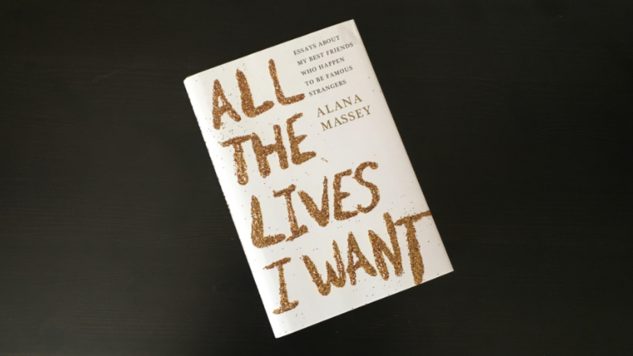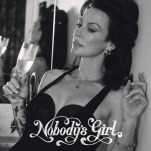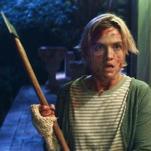Alana Massey Humanizes Pivotal Women from Britney Spears to Joan Didion in All the Lives I Want

Alana Massey’s debut book, All the Lives I Want, has a compelling and confounding table of contents. “No She Without Her: On Mary-Kate and Ashley Olsen and the Singularity,” “Long-Game Bitches: On Princess Di, Lisa ‘Left Eye’ Lopes, and the Fine Art of Crazy Exing,” and “Emparadised: On Joan Didion and Personal Mythology as Survival” are just a few of the titles in her collection of essays. In each piece, Massey turns her critical eye to the ways in which public narratives about dozens of famous women—everyone from Anjelica Huston to Amber Rose—prove destructive and inaccurate.
But why did she write about these specific women? “There is an existing admiration,” Massey told Paste in a phone interview. “These are already celebrities that I like.”
As Massey’s casual interest in these figures turned into a deeper investigation of their public histories, she found that the narratives were not unique—and that she’d experienced similar treatment in her own private life. Similar to how the media emphasized Britney Spears’ body as her defining trait, Massey has been defined by her small stature and reduced to such dehumanizing metaphors as a “buffet of bones.” And like Amber Rose, who publicly shattered “the one-dimensional fantasies strippers are asked to play,” Massey has fought against the unrealistic expectations projected onto her by the men in her life.
In the hands of a less skilled writer, this collection would fizzle. But Massey pairs personal anecdotes with interpretations of celebrities to create a persuasive argument for redefining public narratives. Her success lies in humanizing her subjects, causing readers to empathize with both celebrities and regular women who find themselves in similar situations.
This is especially powerful when Massey writes about Courtney Love’s destructive relationship with Kurt Cobain (and shows how Love’s creative genius was downplayed by her critics), while also exploring terrors she has experienced in her own life. “I have not seen a fraction of the cruelty that the world is capable of,” Massey writes, “but I have trembled often enough in the aftershocks of my own resistance to a world built to break me to know that female brutality is not just an acceptable response, it is the most sensible one, too.”
In Massey’s essays on musicians, she also draws on their lyrics to expand her commentary. Speaking of Dolly Parton’s propensity to explore the tragic side of love, Massey quotes “Do I Ever Cross Your Mind”:
Do you ever wake up lonely in the middle of the night / Because you miss me, do you darling / Oh, and do your memories ever take / You back into another place in time
“Dolly’s religious piety may be real,” Massey writes, “but her obsession with finding the approval of men lingers at the border of worship.” Though Parton portrays a public image that takes its “cues from ‘the town tramp,’” below that persona is a woman interested in exploring theological complexity and in describing a “melancholic view of love.” Massey reveals Parton as a three-dimensional woman, reinforcing the truth that celebrities are more than their public narratives.
“In some sense, every woman feels she is at the mercy of a public that deems some of her actions acceptable and some anathema to femininity, to good taste and to morality itself,” Massey says. So she offers her readers a way out of participating in public criticism: “I want people to forgive themselves for the things that they have done—[the things] that these women have also been punished for and mistreated for.”
Massey’s ultimate—and ambitious—goal for her book is clear: to catalyze real change in readers’ lives.
“I want my writing to have an action item to go away with,” she says. “I want someone to feel that they can look at something differently or feel differently about themselves or other people.”
Jay Ford is a writer living in Houston, TX. He can be found on Twitter @thejayford.







































